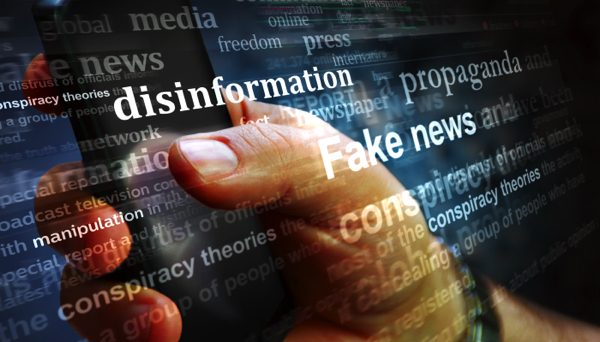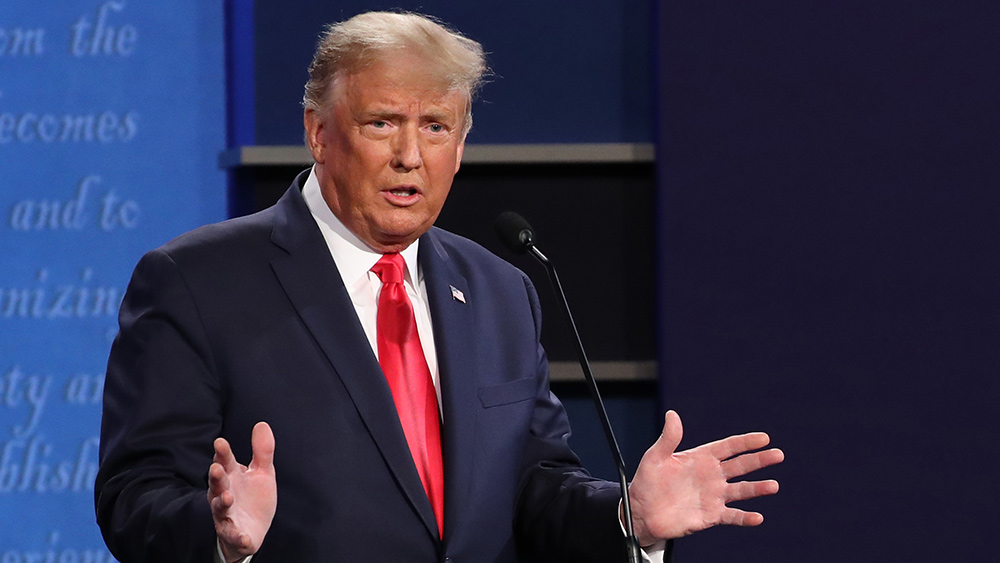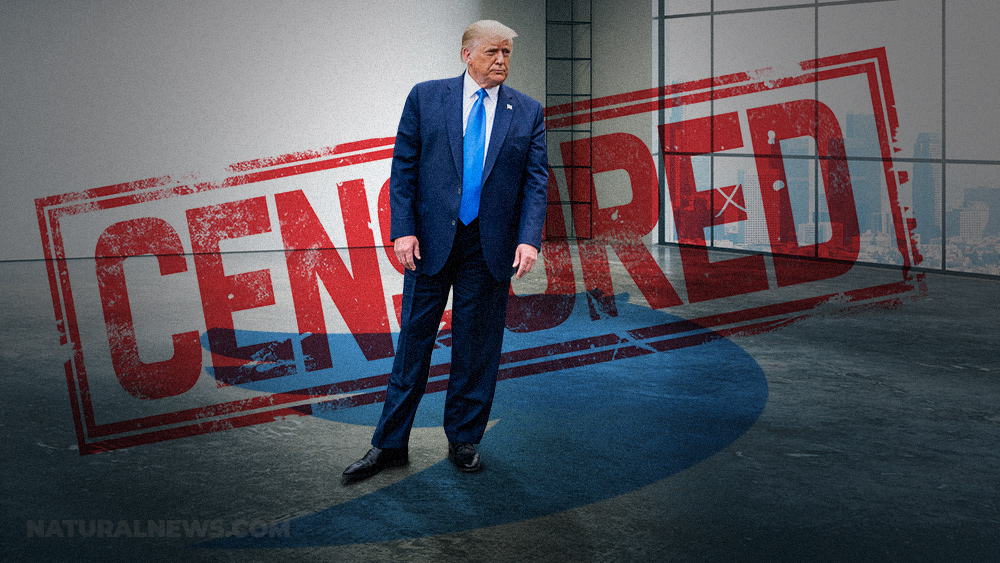WHO tyranny threatens health sovereignty
05/26/2024 / By News Editors

The World Health Organization (WHO), originally established as an advisory body, has a troubling history of health mismanagement and corruption. Of particular concern are the current negotiations, conducted behind closed doors and without substantial public input, which aim to transform the WHO into a controlling body with unilateral, legally binding authority over member states.
(Article republished from TheTruthAboutCancerOfficial.Substack.com)
Yes, you read that correctly! The proposed amendments to the International Health Regulations currently being negotiated by the WHO are specifically designed to override national sovereignty and transfer legally binding authority to the WHO.
This is NOT a conspiracy theory.
Here is the evidence – three official WHO documents (1,2,3).
The proposed changes to the WHO’s core nature and powers directly contradict and nullify the Joint Resolution signed by President Harry Truman in 1948. This resolution explicitly stated that the US is not bound to enact any specific legislative program regarding matters outlined in the WHO’s Constitution.
Under the proposed amendments, membership in the WHO would impose legally binding requirements on the United States. This could force us to enact specific legislation that goes against the principles of the US Constitution, potentially infringing on our sovereignty and unalienable rights.
Here are a few excerpts from the International Health Regulations Review Committee (IHRRC) Final Report:
“The proposed amendments to these definitions could be understood as aiming to change the nature of these recommendations from non-binding to binding, and giving a binding effect to WHO recommendations and requests as proposed in other articles.” (page 26)
“This proposal also renders mandatory the temporary and standing recommendations addressed under Articles 15 and 16.” (page 55)
“The proposed amendment to include a reference to temporary and standing recommendations seems to make application of these recommendations obligatory.” (page 67)
“This Committee is concerned that these proposals may unduly impinge on the sovereignty of States Parties and give binding effects to what are supposed to be recommendations.” (page 68)
The 75th World Health Assembly adopted amendments to 5 articles of the International Health Regulations that dramatically reduced the time the 194 member nations will be allowed to reject future amendments. No signatures from leaders or approvals by any Parliament or Senate were required to enact those amendments into international law, which is legally binding on all nations. This happened in 2022, and it can happen again.
Continued membership in WHO is not just a matter of health policy, it’s a matter of our constitutional rights. It is incompatible with the US Constitution and our legal system, a fact that should resonate deeply with all of us as citizens.
The overreach of power from the WHO could significantly impact Americans in the event of another pandemic, particularly if the WHO gains the authority to make unilateral decisions about healthcare options. As mentioned previously, under the proposed amendments to the International Health Regulations, the WHO could impose legally binding health measures on member states, including the United States, without needing approval from national governments or legislative bodies.
This shift could lead to several profound consequences:
1. Loss of Sovereignty and Autonomy: One of the primary concerns is the potential erosion of national sovereignty. If the WHO is granted unilateral decision-making power, the U.S. government would be compelled to comply with international health directives, even if they conflict with national policies or public sentiment. This could include mandatory vaccinations, quarantine measures, and travel restrictions that might not align with the specific needs or preferences of the American public.
2. Restricted Healthcare Choices: Americans’ ability to make personal healthcare decisions could be significantly limited. For instance, the WHO could mandate certain treatments or preventive measures during a pandemic, leaving individuals with little to no say in their healthcare options. This centralization of power could undermine the patient-doctor relationship and reduce the ability for tailored, patient-specific medical decisions, which are crucial in managing individual health needs.
3. Implementation of Uniform Measures: The WHO’s one-size-fits-all approach might not be suitable for the United States’s diverse population and varied healthcare infrastructure. Uniform measures designed for global applicability may not consider the unique challenges and resources available in different regions of the country. This could result in harmful health policies being enforced across the board, potentially exacerbating health disparities and inequities.
4. Infringement on Personal Freedoms: Implementing WHO-mandated measures could infringe on personal and civil liberties. For example, enforced lockdowns, mandatory testing, and compulsory medical treatments could be imposed without the usual checks and balances provided by domestic legal and political systems. This could lead to public resistance and a loss of trust in national and international health authorities.
5. Economic and Social Impacts: WHO-directed health measures could have substantial economic and social ramifications. Business closures, travel bans, and other restrictive measures could disrupt the economy and daily life, leading to financial hardships, unemployment, and social unrest. The imposition of rigid international guidelines could hinder the ability to respond flexibly and contextually to such challenges.
In summary, the WHO’s overreach of power could significantly affect Americans by undermining national sovereignty, restricting healthcare choices, enforcing uniform measures that may not be suitable for all, infringing on personal freedoms, and causing broad economic and social disruptions. Any international health guidelines must be balanced with the need for national autonomy and the ability to make context-specific decisions that best serve the public’s interest.
As free people, it is crucial to recognize the implications of these proposed amendments on our constitutional rights and national sovereignty. Under these new terms, continued membership in the WHO is not merely a health policy issue but a fundamental challenge to our legal and constitutional framework. To safeguard our sovereignty and ensure that our health policies reflect the principles of our Constitution, we must so the folllowing:
1. Support legislative efforts like H.R. 79 (the WHO Withdrawal Act), which aims to repeal the legislation that joined the United States to the WHO.
2. Defund the WHO.
3. Initiate the process of withdrawing from the WHO membership.
Contact your Representatives and let them know this is what you want them to do. You can find out how here.
Taking these steps is essential to protect our nation’s independence and uphold the values enshrined in our Constitution.
Read more at: TheTruthAboutCancerOfficial.Substack.com
Submit a correction >>
Tagged Under:
current events, dangerous doctors, enslaved, government, health freedom, lies, medical dictatorship, obey, politics, propaganda, Tyranny, WHO, Xpost
This article may contain statements that reflect the opinion of the author
RECENT NEWS & ARTICLES
COPYRIGHT © 2017 PENSIONS NEWS




















